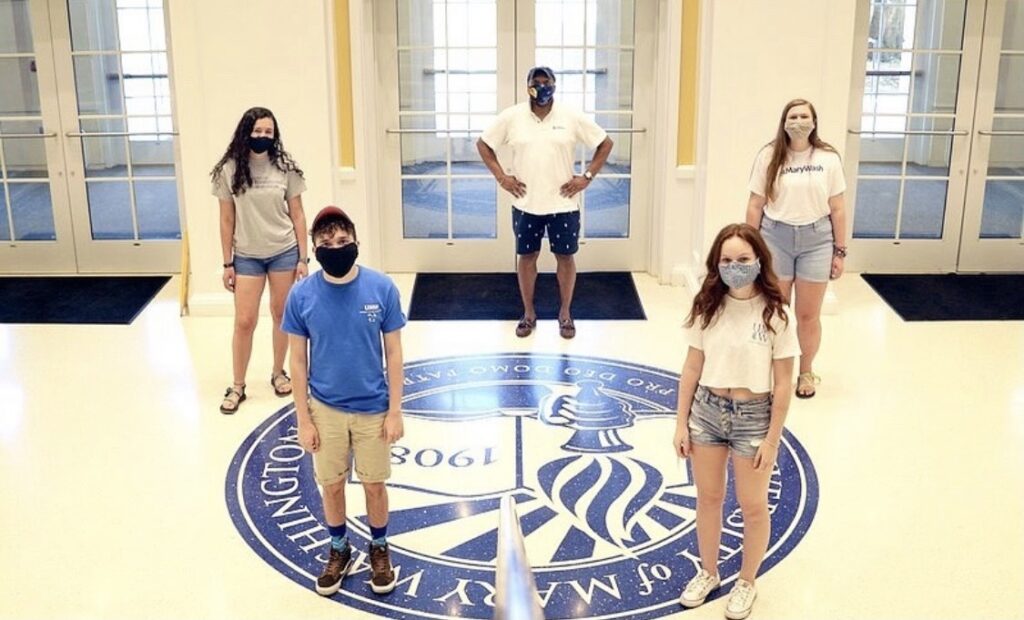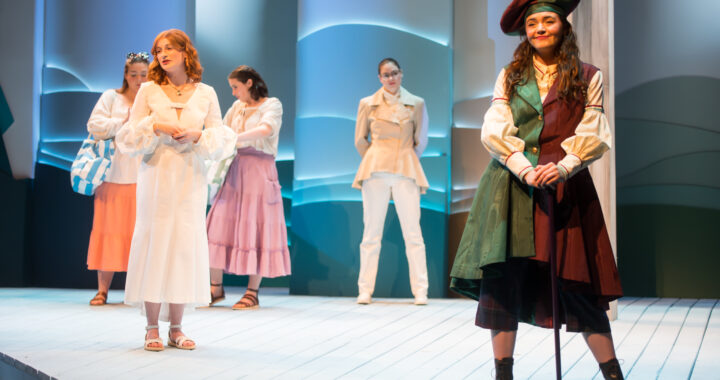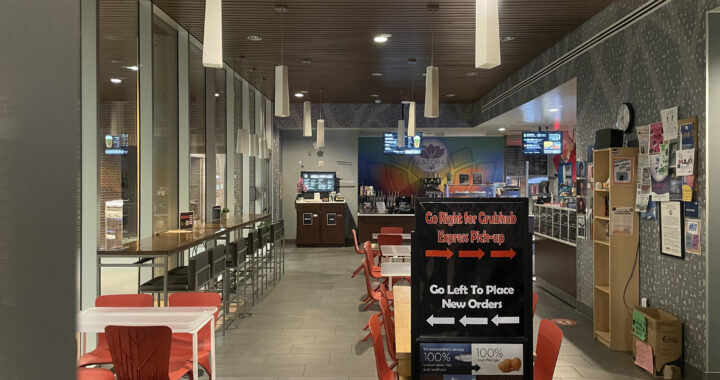Pandemic protocols on campus have pleased most parents
3 min read
Students returned to campus for the first time in September 2020, six months after being sent home. | @marywash on Instagram
PRIYA PATEL
Staff Writer
The restrictions and changes made to campus life because of COVID-19 have not only affected students, but the parents of college students as well. There is both disappointment in not being able to visit their children and an increase in anxiety. Sending your child to live at a college campus, a highly social environment with people constantly coming and going, is understandably something that could cause many parents to worry. This is only worsened by the knowledge of outbreaks at college campuses across the country.
“I was not convinced that resuming in-person classes was the best choice,” said Brenda Cheney, mother of a senior UMW student. “I was skeptical the university and the students would be able to follow the steps needed to stop the virus transmission and keep everyone safe.”
Cheney was glad that the university made it possible to exclusively take online classes for the last and current semesters.
“My student’s classes were all online in the fall and spring, so they did not return to campus,” Cheney said.
Despite the risk, some parents of UMW students were not worried because the university had a thorough plan to deal with the pandemic and explained it to students and their families through emails and livestreams before the school actually reopened. Although fewer students returned to campus this school year, these information sessions helped convince at least some parents that it would be safe.
“I was comfortable because I felt UMW had COVID protocols in place,” said Julie Gorski, mother of two UMW students. “I did not consider having them do online classes.”
Patricia Murer, mother of a sophomore UMW student was similarly comforted by the protocols being put in place.
“I was not worried about the school opening because it had done a great job communicating with students and parents about the close work done with the VA Health Department to implement CDC and VDH recommendations like testing, distancing requirements and dedicating isolation and quarantine dorm spaces,” Murer said. “I felt confident that they were going to make a decision that benefited the students the best.”
The small size of UMW was also reassuring to parents who might have otherwise feared an outbreak.
“UMW, being a smaller school, with students having a stronger sense of belonging, allows for less difficult monitoring of COVID cases,” Murer said. “Besides, the leadership created an environment of inclusion where everyone was responsible for their actions and the health of the community, which I believe is the sense that all individuals in a society need to develop.”
For many parents, the in-person campus experience was worth the risk of reopening.
“I was thrilled that UMW reopened both times,” Murer said. “I believe that young people should be learning around their peers, in person, so they can develop appropriate personal, problem solving and communication skills and become a fulfilled contributor to society. Those skills are sharpened only when studying, living, and working with other people in person.”
The concern level of parents also depends on the health of their child, as well as their trust in their child.
“I never considered having my child not return to school and only take classes online,” Murer said. “Fortunately, she does not have any underlying medical conditions that would suggest she would develop complications if she got infected with COVID. I knew that she understood the importance of wearing masks, washing hands, distancing and reducing time in enclosed areas.”
Parents differ on their opinion of the university reopening, but there is less disagreement that the abnormal semester is still disappointing. They are missing out on being there with their children as they go through college. There are many restrictions preventing parents from visiting and events where parents are normally invited have had to go virtual. One of the most significant of these is commencement, the plans of which are still being finalized. Watching your child receive their degree after raising them and supporting them through college is often a bigger deal to the parents than it is to the child.
Many parents are unsure what commencement will look like, but because it is at least known that it will not be everything it used to be, there is a common feeling of disappointment.
“I assume there will not be an in-person event this spring which is understandable, but definitely disappointing for all students, including my child who will be graduating,” Cheney said.











